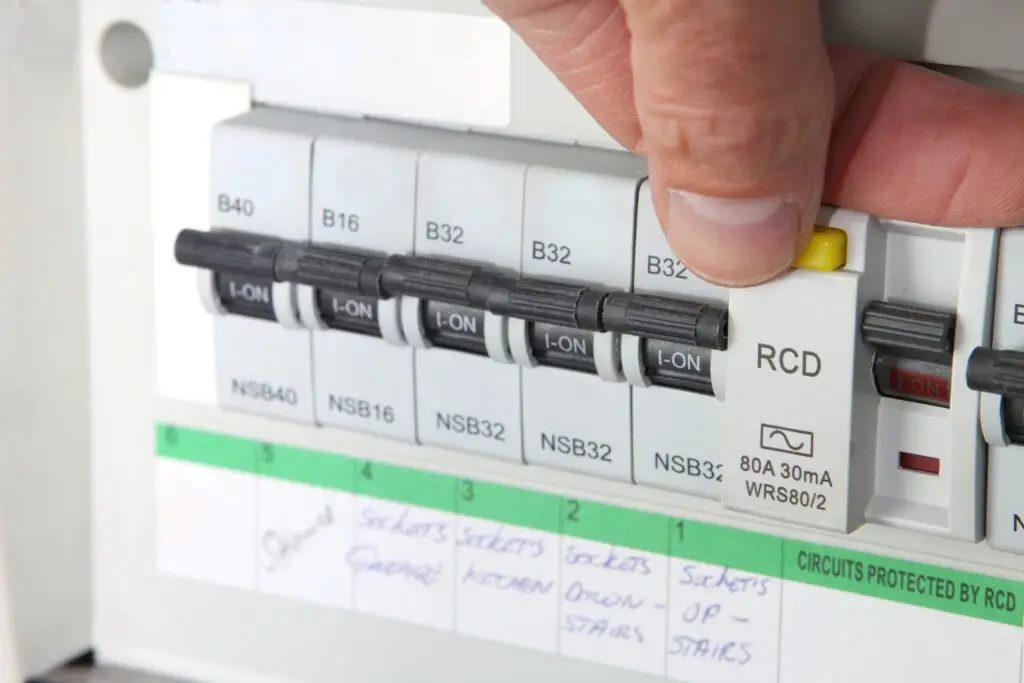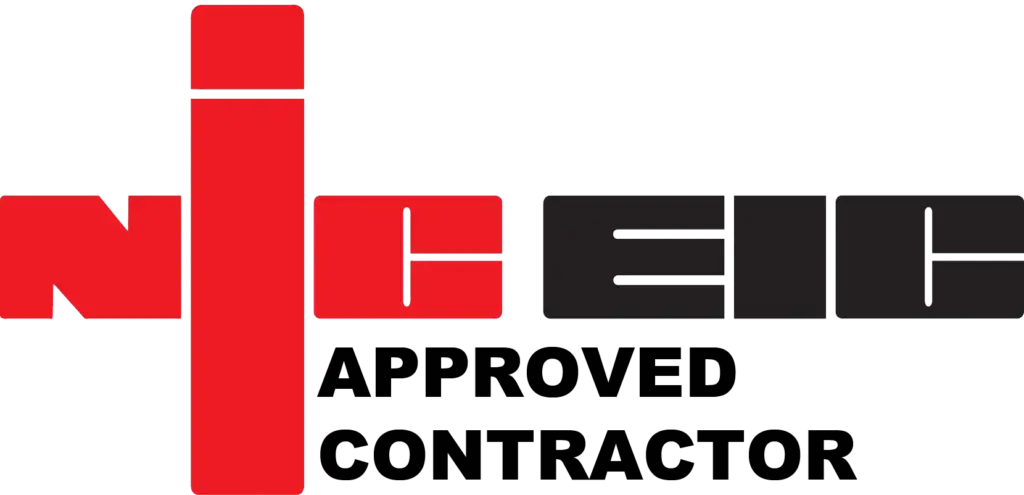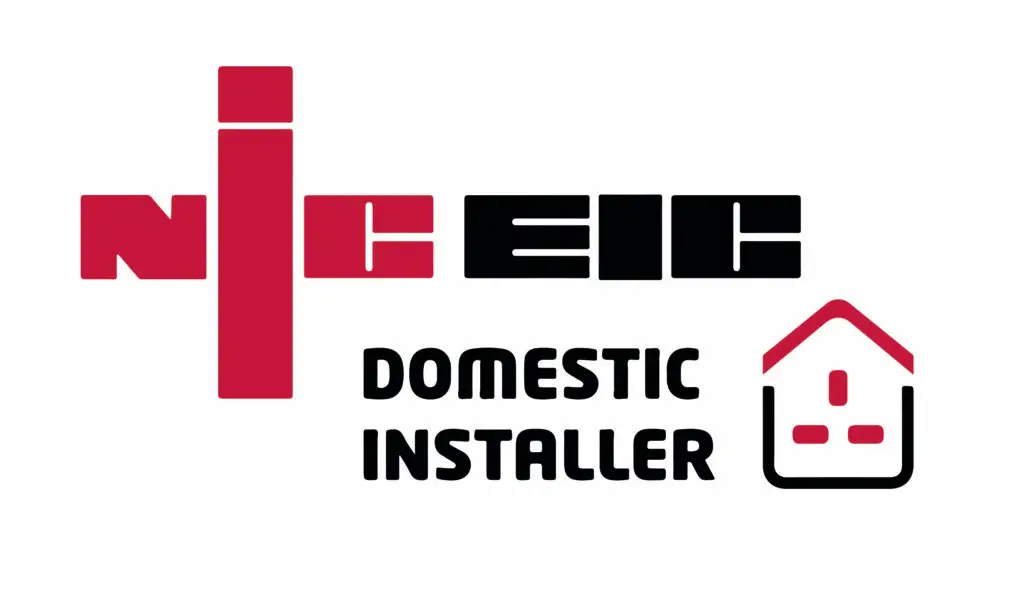If your Residual Current Device (RCD) is tripping frequently, it can be a sign of an electrical fault or a safety issue. RCDs are designed to protect you from electrical shocks and fires, so it’s important to address the problem promptly. Here are the steps to take if your RCD is tripping:
Disconnect All Appliances: Start by unplugging or turning off all electrical appliances and devices in your home. This includes kitchen appliances, televisions, computers, extension leads, and any other electrical equipment. Don’t forget hard wired appliances, like the boiler.
Reset the RCD: Locate your consumer unit (also known as the fuse box) and identify the RCD that has tripped. It should be labelled as “RCD” or “Residual Current Device.” To reset the RCD, firmly push the switch to the “OFF” position, and then switch it back to the “ON” position. If it doesn’t reset or immediately trips again, there may be a persistent fault.

Check Appliances: If the RCD stayed on, now begin plugging appliances back in. If the RCD tripped when a specific appliance was connected, unplug it and have it inspected by a qualified electrician. Faulty appliances can cause RCD trips.
Call a Qualified Electrician: If you can’t identify or resolve the issue yourself, it’s crucial to contact a qualified electrician. They have the expertise and tools to diagnose and repair electrical faults safely and in compliance with regulations. Do not attempt to fix electrical issues beyond your capabilities, as it can be dangerous.
Avoid Resetting Repeatedly: If the RCD keeps tripping, do not continuously reset it without addressing the underlying problem. Repeated tripping is a sign of a serious issue that should be investigated by a professional.
Remember that the safety of your home and your family is of utmost importance. If you’re unsure about dealing with electrical problems, always seek assistance from a qualified electrician. Electrical issues should not be taken lightly, as they can lead to fires, electrical shocks, and other hazards.


